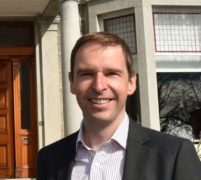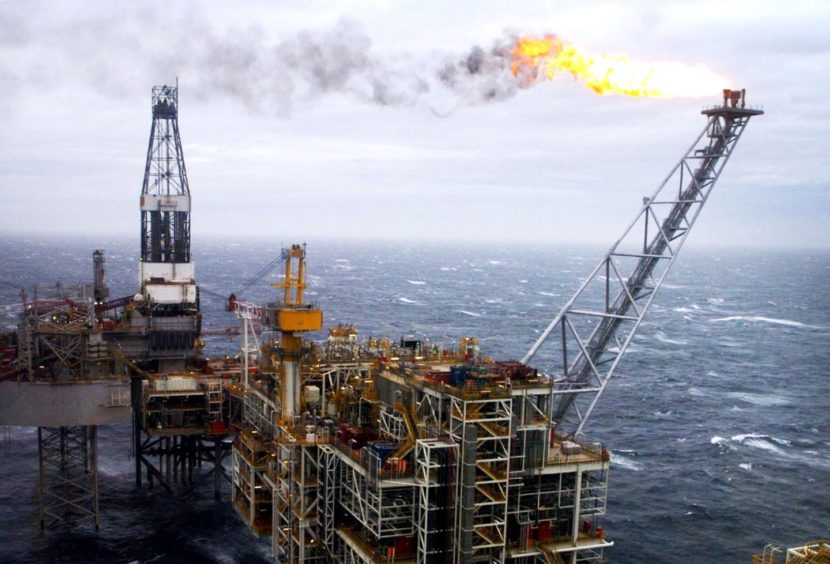It is part of my psyche that I worry about what other people think about me. So writing a column is a sure fire way to give me the heebie-jeebies.
It is very difficult to think about something which won’t offend someone these days. That is because lots of people get offended by people just having a different view from them it seems. So on the basis I am going to offend someone I figured I may as well just jump right in.
Two things which could easily offend people are the continued exploration and production of oil and gas and the hypothecation of tax for the NHS and social care. I’ve written on similar matters before so I’ll only offend the same people again.
These things fire people up because whatever we do there are many intended and unintended consequences.
Both of the issues above have irritated me as they have been covered with such black and white perspectives.
Of course, whether we produce and drill for oil is a binary choice, as is whether we tax people or not. However, there are many angles to these two stories and topics which have been missed in articles and in online rants.
Issue of whether to keep drilling for oil isn’t black and white
On oil and gas, the position of those who want production and drilling is that oil is needed; it benefits society in many different ways, it raises tax, creates jobs and helps our economy. All of these things are true and correct. However, it is also a fact that the product contributes to many bad outcomes which I haven’t heard many oily people say in such simple terms.
On the other side (the “stop drilling” side) the positions being held feel untenable to me.
“We have some of the pieces but cannot see where they go together because the jigsaw doesn’t have a picture to follow, just a set of very mixed instruction
Taking the no drilling route does not stop oil production globally or locally. In fact, if Cambo is relatively lower on emissions than some overseas production it may actually help displace “bad” fields. Stopping drilling, exploration and production in the short-term would lead to huge socio-economic issues worldwide.
That said, saying “no” to drilling in the UK would be a hell of statement and would certainly divert capital to other industries and perhaps even accelerate growth in these areas. That approach only works if it is couched in a plan, though, and there isn’t one.
I have no idea where we are positioning ourselves as a nation (Scotland or UK) on our economy or industrial policy. We have some of the pieces but cannot see where they go together because the jigsaw doesn’t have a picture to follow, just a set of very mixed instruction.
Taxing problem of how to pay for social care
On the NHS and social care tax we have just lurched to an answer without really understanding what we are trying to do with tax or the NHS or social care.
Hypothecated taxes aren’t new but seem to be en vogue for politicians who can say they are taking your money for something in particular; it feels more palatable. The issue with this particular tax is that it is disproportionately costly to those who are less well off. This cohort now have even less income and will then, in turn, cost the NHS and social care even more.
Residents and businesses in the UK have always paid tax to fund those services via income tax, corporate tax and such like. I’m however particularly disappointed that there seems to be no consideration of the wider issues around taxation and equality.
"It would be wrong for me to say we can pay for this recovery without taking the difficult but responsible decisions about how we finance it"
Boris Johnson announces the UK National Insurance rate to rise by 1.25% to fund health and social care in Englandhttps://t.co/x4LghDgNg7 pic.twitter.com/qdnvGWva6w
— BBC Politics (@BBCPolitics) September 7, 2021
I’ve written before that consideration and analysis around wealth and capital taxes would be more likely to create more equity in society. If this happened then the per capita cost of the NHS and social care may actually fall too or be more fairly shared. However, the UK Government has appeared to just go for the easiest option.
Both of these issues need to be considered in a wider context and wider global and societal goals pondered as part of that. These are highly complex things to assess and should be acknowledged as such.
Whatever decisions are made can only ever be the least worst because there is no single right answer.
I don’t believe the least worst decision was made on the NHS taxation. I just hope that the decision making on oil and gas production and exploration leads to the least worst decision, not one of the worst outcomes possible.
James Bream was research and policy director at Aberdeen and Grampian Chamber of Commerce and is now general manager of Aberdeen-based Katoni Engineering


